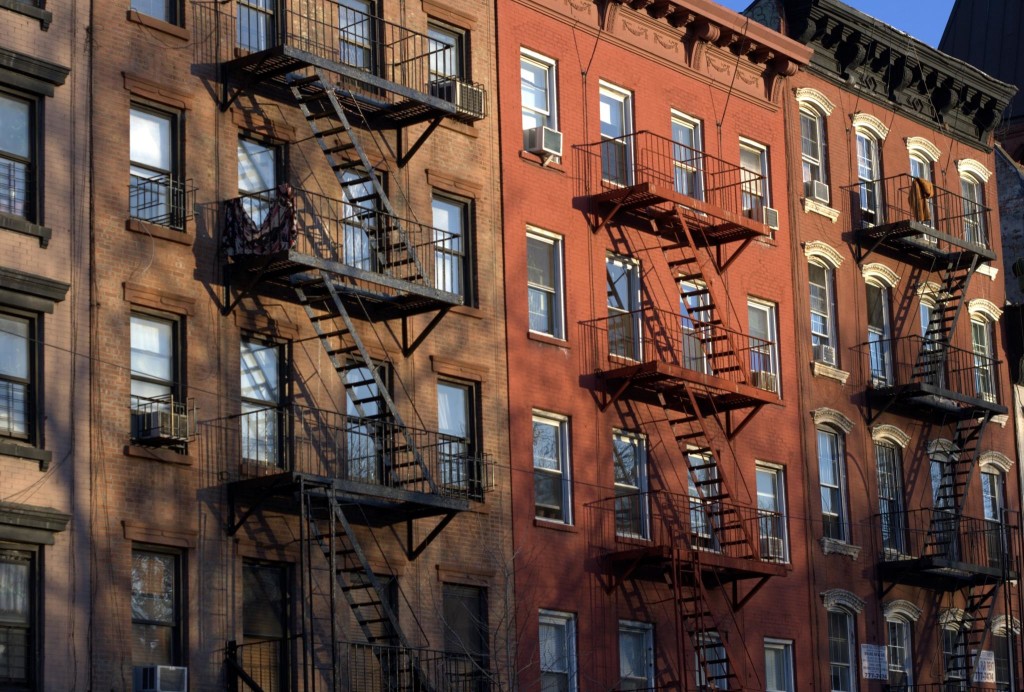
The East Village is home to the alleged Airbnb boom. (scottdavies / Flickr)
The debate in New York City over Airbnb got a jolt from the left as a report was released jointly by New York Communities for Change (NYCC), a nonprofit community organizing group, and the coalition called Real Affordability for All. The report, titled, “Airbnb in NYC: Housing Report,” which drew coverage from the NY Daily News, Curbed, Crain’s, and The Real Deal, declared that one in five New York City apartments in some neighborhoods were being rented out via Airbnb. The Daily News reported that the East Village led the Airbnb boom with over 28 percent of the neighborhood’s units listed on the website. This report came as the latest salvo in the New York City’s battle against the website, and against the broader housing shortage seem throughout the five boroughs.
If that rate of Airbnb units sounds improbably high, that’s because it is. The report misses an opportunity to add valuable knowledge to this conversation. In fact, its lasting contribution might be to diminish the quality of the debate, which serves no one.
The report relies on data scraped from Airbnb, cleaned, and made public by insideairbnb.com (though due to sloppy footnoting, it is not possible to know how the authors arrived at some numbers). Its methodology discussion—oddly divided between a prologue and an appendix—describes two main details. One is the valid need to combine data in Williamsburg because of gaps in how ZIP codes overlap with the neighborhoods Airbnb defines. (In general, ZIP codes are not a good proxy for neighborhoods, but this is a minor quibble in this context.) Second, the authors explain that they combined data from Inside Airbnb with the American Community Survey, which they inaccurately describe as “census data,” and which is gathered entirely differently. In any case, the authors fail to explain what information they gleaned from the ACS. Finally, they also include a cryptic nod to the NYC Housing and Vacancy Survey, but omit any hint as to what they used it for.
The NYCC report attempts to prove that the famous home-rental website hurts New York City neighborhoods by choking the city’s supply of housing. It highlights (though misstates) the fact that there are 27,000 listings on Airbnb citywide. The public policy concerns surrounding Airbnb include claims that landlords are forcing tenants to move out so that they can make much more money by renting units to tourists; that many hosts do not have the legal authority to rent out a room.
The Daily News article paraphrases a counter argument Airbnb makes, claiming that data scraped from its site do not make a solid foundation for analysis. However, Airbnb offers no alternative, instead refusing to publicize any data and forcing the New York State Attorney General Eric Schneidermann to threaten the company with a subpoena. The website is not helping itself on this count or, frankly, any of its public policy initiatives.
The report is a shame, because NYCC has done some quality organizing work, like on paid sick leave. This new report, though, is so full of spurious correlations and red herrings that it reads as much like propaganda as anything Airbnb has published, including this sham of an economic analysis that “proves” that the website benefits the middle class by offering hosts a way to supplement their income, which is the same argument that could justify taking any second job, from being an SAT tutor to dealing illegal drugs.
There appears to be a lot of laziness involved on both sides here: just as the NYCC report makes unstated logical jumps, the press coverage fails to quote the report’s authors or even mention that they relied on Inside Airbnb data. We are left holding a pile of tattered half-truths and the standard defense that Airbnb hosts are good, hospitable folks in it for help paying their too-high rent.
The fact is that no one—not Airbnb, not the government, and not housing analysts—knows the true effects of short-term housing on the rental market. Although the logical chain of low vacancy rate to short-term rentals listed online to rising rents strikes an intuitive chord, it requires a web of assumptions to hold it together.
Very passionate people are lining up on either side of this debate: those who support innovation and the sharing economy on one side, and those concerned with distortions in the housing market and illegal hotel activity on the other. Perhaps this NYCC report is simply designed to reframe the conversation on its own terms. Perhaps its aim is simply to stoke informed debate. Hopefully it succeeds at the latter; it fails at the former.
There is no doubt that some Airbnb hosts are breaking the law. There is no doubt that renting a spare bedroom in your apartment to tourists rather than a permanent resident puts pressure on the city’s housing stock. Just the same, there is no doubt that some listings are for empty bedrooms in owner-occupied units. But there are many, many questions that remain about Airbnb and its effects. Unfortunately, this report compounds these questions, rather than answering them.
.

